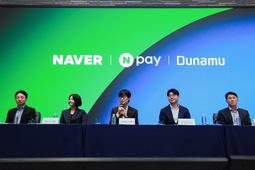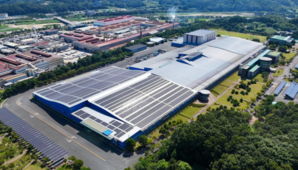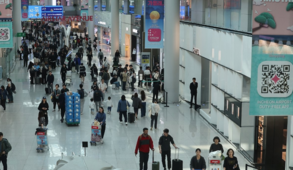
[News Space=Reporter seungwon lee] Korea Otsuka Pharmaceutical (CEO Moon Seong-ho) is expected to show high growth in both sales and profits in 2024, and is running at full speed, completely free from the aftermath of the anti-Japanese boycott movement.
According to the audit report of the Financial Supervisory Service's electronic disclosure system on the 31st, last year's sales increased by 13% to KRW 267.6 billion compared to the previous year (KRW 236.8 billion).
The sales ratio was as follows: product sales (sales of pharmaceuticals produced at Gyeonggi-do Hyangnam Pharmaceutical Complex) KRW 202.9 billion (75.8%), merchandise sales (healthcare products, injections, etc. pharmaceuticals) KRW 61.1 billion (22.8%), and clinical services KRW 3.6 billion (1.4%).
Operating profit also increased by 19.8% year-on-year to KRW 46.9 billion, resulting in an operating profit margin of a whopping 17.5%. Net income also increased by 11.5% year-on-year to KRW 42.2 billion, resulting in a net profit margin of 15.8%.
Sales and administrative expenses amounted to KRW 81.2 billion, of which KRW 24.7 billion was for salaries, KRW 8 billion for commissions (including royalties paid by the head office), and KRW 20.1 billion for advertising and publicity expenses.
The debt ratio also maintained solid financial soundness at 11.1% (8.7% in the previous year), and cash assets amounted to KRW 67.9 billion (up 27.1% from KRW 53.4 billion in the previous year), and retained earnings amounted to KRW 3.749 trillion, securing stable equity capital.
The dividend payout ratio was maintained at the same level as the previous year, with a cash dividend of 15,000 won per share, totaling 15.7 billion won. Since Otsuka Pharmaceutical of Japan holds a 70% stake, approximately 11 billion won will be paid to the Japanese headquarters. Including royalties, up to 19 billion won will be paid to the Japanese headquarters.
However, the high dependence on special related parties and the insurance payment aspect are pointed out as risks.
The company's major shareholder, Otsuka Pharmaceutical Co., Ltd. of Japan, has a 49.2% (KRW 131.5 billion) share of sales and 62.1% (KRW 84.5 billion) of purchases, so there is a high possibility that performance will be affected if transaction conditions change. In addition, there is a provision of KRW 756 million based on a risk-sharing agreement with the National Health Insurance Corporation. There is a possibility that additional burdens will arise if the list of pharmaceutical benefits is changed.
An official from Korea Otsuka Pharmaceutical said, "We estimated the amount of risk-sharing contract deposit among our products under the RSA (Iclusig) that is likely to be paid in the future and recorded it as a provision," adding, "No payment has been made to the corporation to date."
Korea Otsuka Pharmaceutical is a local Korean subsidiary of the Otsuka Pharmaceutical Group, a global pharmaceutical company from Japan, and has many characteristics of a Japanese company.
First, Korea Otsuka Pharmaceutical is a foreign investment company established in 1982 through joint investment by Japan Otsuka Pharmaceutical and Korea Jeil Pharmaceutical. Currently, Japan Otsuka Pharmaceutical holds a 70% stake, and Korea Jeil Pharma Holdings owns 22.5%. Since its establishment, it has been operated based on the technology and capital of the Japanese headquarters, and it plays a role as a base for new drug development and production in accordance with Japan Otsuka Pharmaceutical's global strategy.
Second, about 49.2% of Korea Otsuka Pharmaceutical's sales come from Japan Otsuka Pharmaceutical, and 62.1% of its purchases are also made from the Japanese headquarters. This shows a high level of dependence on the Japanese headquarters. Korea Otsuka Pharmaceutical has also signed a royalty agreement with Japan Otsuka Pharmaceutical since 2008, paying a certain percentage of the net sales of major products (e.g. Mucosta, Pretal) to the headquarters. This shows that the headquarters maintains technical and commercial control.
In addition, an average of 26.5% of net income was remitted to the Japanese headquarters as dividends, which shows that a significant portion of profits are flowing out overseas.
Third, the management composition and decision-making structure also reveal the characteristics of a Japanese company. The CEO is Moon Seong-ho, a Korean, but the top-level controlling company is Otsuka Holdings of Japan. This suggests that despite the localized management composition, the final decision-making is influenced by the Japanese headquarters.
In the past, controversy arose when it was revealed that Japan's Otsuka Pharmaceutical, the parent company of Korea Otsuka Pharmaceutical, indirectly supported a politician who supported a visit to the Yasukuni Shrine. This shows that the political actions of the parent company can also affect its subsidiary, Korea.
A financial analysis expert in the pharmaceutical industry emphasized, "Korea Otsuka Pharmaceutical is operated under the control of Japan's Otsuka Pharmaceutical Group, and shows strong dependence through its shareholding structure, related party transactions, and royalty payments." He also added, "The high dividend outflow and royalty payments to Japan could be controversial in terms of its contribution to the domestic economy, and the issue of being a Japanese company could also have a negative impact on its brand image."
Representative products of Korea Otsuka Pharmaceutical include Mucosta, a peptic ulcer treatment drug; Pretal, which inhibits thrombosis and improves peripheral blood circulation; Samsca, a hyponatremia treatment drug; Mikeran, a treatment for arrhythmia, angina, and essential hypertension; Abilify, a treatment for schizophrenia and bipolar disorder; and Iclusig, an anticancer drug containing the ingredient ponatinib.
In particular, the men's skincare cosmetic product Ulos, which is well-known as a healthcare product in Korea, is also a product of Korea Otsuka Pharmaceutical. Also, Soyjoy, a high-protein, high-fiber health snack based on soybeans, is being sold through convenience stores and large marts.
Among Japanese companies operating in Korea, Korea Otsuka Pharmaceutical was unusual in actively using Chinese characters in its audit reports. However, perhaps due to the aftermath of the anti-Japanese boycott movement, it has since eliminated Chinese characters from its audit reports.
Dong-A Otsuka, famous for brands such as Pocari Sweat, Demisoda, Oronamin C, and Oran-C, is 50% owned by Japan Otsuka Pharmaceutical, and the remaining 49.99% is owned by Dong-A Socio Holdings, the holding company of Dong-A Pharmaceutical.
























































